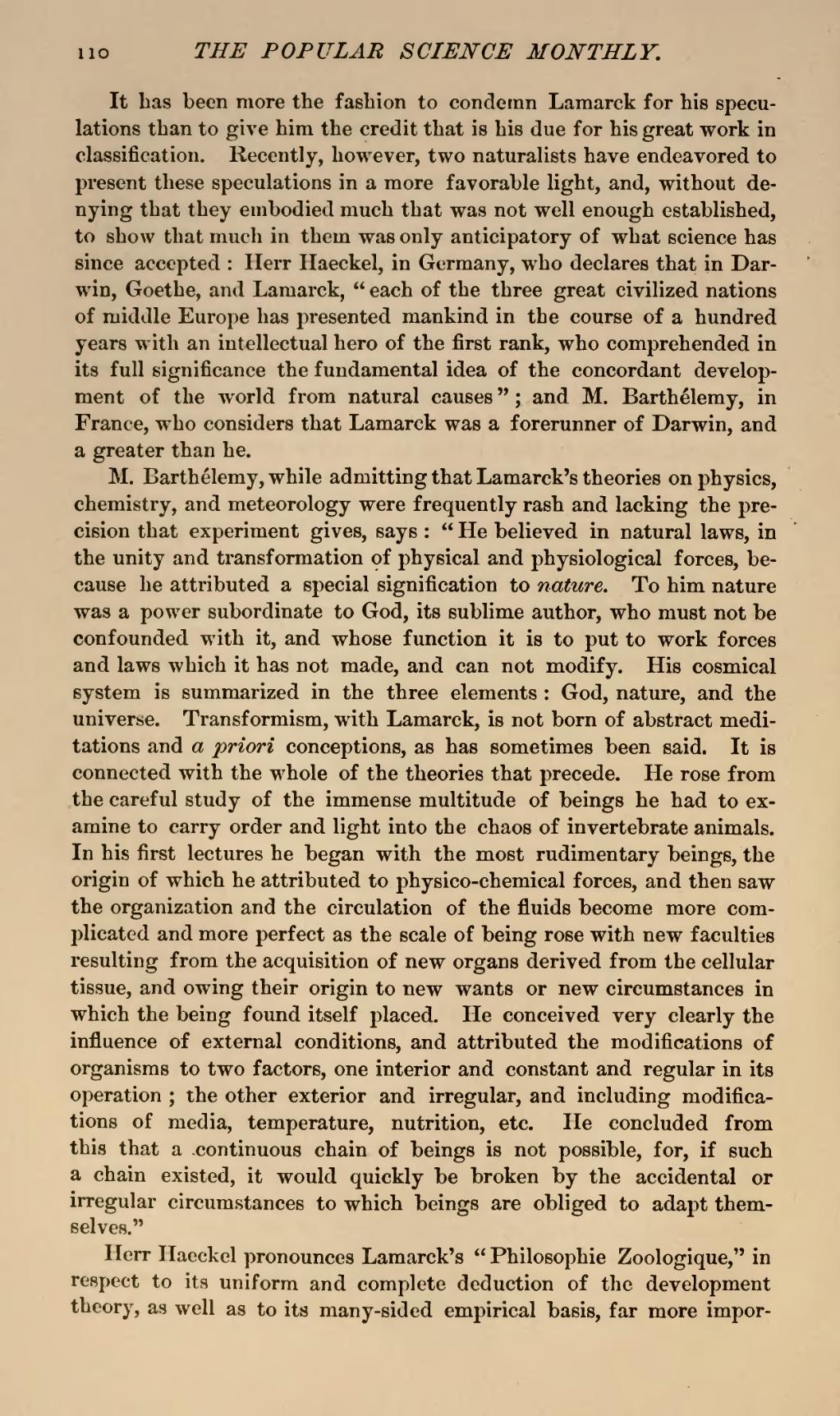It has been more the fashion to condemn Lamarck for his speculations than to give him the credit that is his due for his great work in classification. Recently, however, two naturalists have endeavored to present these speculations in a more favorable light, and, without denying that they embodied much that was not well enough established, to show that much in them was only anticipatory of what science has since accepted: Herr Haeckel, in Germany, who declares that in Darwin, Goethe, and Lamarck, "each of the three great civilized nations of middle Europe has presented mankind in the course of a hundred years with an intellectual hero of the first rank, who comprehended in its full significance the fundamental idea of the concordant development of the world from natural causes"; and M. Barthélemy, in France, who considers that Lamarck was a forerunner of Darwin, and a greater than he.
M. Barthélemy, while admitting that Lamarck's theories on physics, chemistry, and meteorology were frequently rash and lacking the precision that experiment gives, says: "He believed in natural laws, in the unity and transformation of physical and physiological forces, because he attributed a special signification to nature. To him nature was a power subordinate to God, its sublime author, who must not be confounded with it, and whose function it is to put to work forces and laws which it has not made, and can not modify. His cosmical system is summarized in the three elements: God, nature, and the universe. Transformism, with Lamarck, is not born of abstract meditations and a priori conceptions, as has sometimes been said. It is connected with the whole of the theories that precede. He rose from the careful study of the immense multitude of beings he had to examine to carry order and light into the chaos of invertebrate animals. In his first lectures he began with the most rudimentary beings, the origin of which he attributed to physico-chemical forces, and then saw the organization and the circulation of the fluids become more complicated and more perfect as the scale of being rose with new faculties resulting from the acquisition of new organs derived from the cellular tissue, and owing their origin to new wants or new circumstances in which the being found itself placed. He conceived very clearly the influence of external conditions, and attributed the modifications of organisms to two factors, one interior and constant and regular in its operation; the other exterior and irregular, and including modifications of media, temperature, nutrition, etc. He concluded from this that a continuous chain of beings is not possible, for, if such a chain existed, it would quickly be broken by the accidental or irregular circumstances to which beings are obliged to adapt themselves."
Herr Haeckel pronounces Lamarck's "Philosophic Zoologique," in respect to its uniform and complete deduction of the development theory, as well as to its many-sided empirical basis, far more impor-
